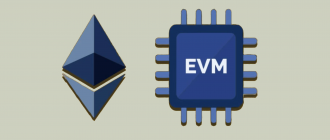As cryptocurrencies gain popularity and diversity, selecting the most suitable storage method becomes increasingly vital for users. This article delves into the differences and characteristics of hot and cold wallets, and evaluates the pros and cons of custodial and non-custodial wallets. Special attention is given to exchange wallets, a common but not the only option for managing cryptocurrency assets. We aim to explore key factors influencing wallet choice to help you find the most suitable option for storing your crypto assets.

Types of Cryptocurrency Wallets
Cryptocurrency wallets can be classified based on several factors, the most significant being the method of network access and the degree of user control over private keys. Here’s a detailed look at each type:
Hot Wallets
Hot wallets are constantly connected to the internet, offering convenience for quick transactions and active trading. Their main advantage lies in their ease of use and immediacy. However, being always online increases security risks, making hot wallets a potential target for hackers.
Cold Wallets
In contrast, cold wallets are not connected to the internet and are used for long-term storage of cryptocurrencies. They are considered the safest storage method, as access to funds is only possible through a physical device. Cold wallets are ideal for protecting large volumes of assets from online threats.
Custodial Wallets
Custodial wallets are managed by a third party, such as a cryptocurrency exchange or financial service. These wallets are convenient for users who prefer not to manage their keys. However, the main drawback is the risk of losing funds due to hacking or dishonest actions by the service provider.
Non-custodial Wallets
Non-custodial wallets give users full control over their private keys and cryptocurrency assets. This enhances security but also requires the user to be responsible for key safekeeping and security measures. Non-custodial wallets can be either hot or cold, depending on their usage.
Understanding Hot Wallets for Cryptocurrencies
Hot wallets offer the convenience of quick access and daily use of cryptocurrencies but are vulnerable to online attacks such as phishing, ransomware, and other malware.
Popular Hot Wallet: Metamask

It’s crucial to use a VPN to protect your internet connection and regularly update your wallet to fix any vulnerabilities. Multi-factor authentication and additional security features, such as transaction verification via email or SMS, are recommended.
Examples of Hot Wallets
- Coinbase Wallet: Known for its user-friendly interface, ideal for beginners, with security features like biometric lock and automatic backup of encrypted keys to the cloud.
- Metamask: A wallet designed for interacting with decentralized applications on the Ethereum blockchain. It allows users to store ether and ERC-20 tokens and engage with decentralized exchanges.
- Exodus: A multi-currency wallet supporting over 100 cryptocurrencies, featuring an attractive interface and a built-in exchange function. Compatible with hardware wallets like Trezor.
- Electrum: One of the oldest Bitcoin wallets, renowned for its customizable security features and the ability to choose transaction fees. Offers advanced features such as multi-signature and deterministic wallets.
This comprehensive overview should help you make an informed decision about the best cryptocurrency wallet for your needs, balancing convenience against security.
What are Cold Wallets for Cryptocurrencies?
Definition and Security Features
Cold wallets, isolated from the internet, offer the highest level of protection against online threats. They store cryptocurrency keys on a physical device that lacks a direct connection to the network, virtually eliminating the risk of cyberattacks.
Popular Cold Wallets
- Trezor Model T: This hardware wallet supports multiple cryptocurrencies and offers advanced security features. It provides complete isolation of keys even when connected to an infected computer, thanks to its secure operating system.
- Coldcard: A hardware wallet specialized for Bitcoin, Coldcard’s main advantage is its security-focused microchip and the ability to generate wallets without connecting to a computer.
- Ledger Nano X: Another popular hardware wallet that can connect to devices via USB or Bluetooth. The Ledger Nano X features support for multiple applications simultaneously and has an improved battery life compared to previous models.
- Ellipal Titan: Unique among cold wallets, the Ellipal Titan is completely isolated from external connections such as USB, WiFi, or Bluetooth. It uses QR codes for transaction processes, fully eliminating the risk of online hacks.

Security Mechanisms of Cold Wallets
Cold wallets employ complex encryption algorithms to safeguard private keys. Most hardware wallets also provide a recovery option through special recovery phrases (seed phrases) that need to be stored securely to prevent loss of access to assets in case the device is lost or damaged.
The Ideal Use-Case for Cold Wallets
Cold wallets provide an unmatched level of security at the expense of convenience, making them the ideal choice for long-term storage of large volumes of cryptocurrencies.
Custodial vs. Non-Custodial Wallets
Custodial Wallets
Custodial wallets are managed entirely or partially by a third party, usually an exchange or other financial organization. Users entrust the storage of their private keys to the service, which simplifies asset management but also increases risks in case of hacking or dishonesty by the operator.
Advantages of Custodial Wallets:
- Ease of Use: Users are not responsible for managing private keys, simplifying the transaction process.
- Access Recovery: In case of lost login data, users can regain access through the custodial provider.
- Additional Services: Many custodial services offer extra features such as currency exchange, staking, and lending.
Disadvantages of Custodial Wallets:
- Security Risk: Centralization of private keys increases vulnerability to cyberattacks.
- Dependence on Third Parties: Users depend on the policies and stability of the custodial service.
- Regulatory Risks: Potential legal restrictions or account blockages by regulatory demands.
Non-Custodial Wallets
Non-custodial wallets allow users full control over their cryptocurrency assets and private keys, without handing them over to a third party. This ensures a high level of security and independence, as only the user has access to their funds.
Advantages of Non-Custodial Wallets:
- Full Control Over Funds: Users manage their assets independently without the risk of interference.
- Security: Reduces the risk of asset theft, as private keys are not stored on third-party servers.
- Privacy: Less information is disclosed to third parties.
Disadvantages of Non-Custodial Wallets:
- Responsibility: The user is fully responsible for the security and backup of their keys.
- Usage Complexity: Requires more technical knowledge for wallet management and setup.
- Limited Functionality: Many non-custodial wallets do not offer additional services available in custodial services.
Choosing between custodial and non-custodial wallets depends on the user’s personal preferences, their willingness to take responsibility for security, and their need for additional services. A thorough understanding of each wallet type will help determine the most suitable option for storing and managing cryptocurrency assets.
What are Exchange Wallets?
Overview

Exchange wallets are a type of custodial wallets provided by centralized cryptocurrency exchanges such as Binance, HTX, or KuCoin. These wallets facilitate the storage of cryptocurrency assets directly on trading platforms, simplifying the process of trading and currency exchange.
How Exchange Wallets Work
Upon registering with an exchange, users receive an exchange wallet for each supported cryptocurrency. These wallets are managed by the exchange, which holds the private keys on behalf of the users. Users can deposit and withdraw funds as well as use them for trading on the exchange. Transactions are conducted within the exchange’s system, ensuring fast transaction execution.
Advantages of Exchange Wallets
- Convenience: Exchange wallets allow users to trade quickly without the need to transfer funds to external wallets.
- Support for Multiple Currencies: Most major exchanges support a wide range of cryptocurrencies, providing a convenient way for users to manage different assets.
- Integration with Trading Tools: Exchanges offer various market analysis tools that are integrated with wallets, simplifying the trading decision process.
Risks of Exchange Wallets
- Security: Storing funds on an exchange increases the risk of losing funds in case of a hack. There have been several significant incidents where users lost their funds following cyber attacks on exchanges.
- Dependence on the Exchange: Users depend on the stability and reliability of the exchange, which may experience technical failures, regulatory issues, or even financial difficulties.
- Regulatory Restrictions: Exchange wallets often fall under legislative influence and can be blocked or restricted in certain countries.
While exchange wallets offer convenience and easy access to trading, they carry certain risks. Users seeking maximum security for their funds are advised to consider using non-custodial or cold wallets for long-term storage of significant amounts. For everyday trading and operations requiring quick access to assets, exchange wallets remain a popular and practical choice.
How to Choose a Cryptocurrency Wallet
Choosing the right cryptocurrency wallet is key to ensuring the security of your assets and the convenience of their use. Here are some criteria to help you make an informed choice:
Identify Your Needs: Understand the purposes for which you plan to use the wallet:
- Daily Transactions: If you need access to funds for frequent operations, hot wallets may be more convenient.
- Long-Term Storage: For large amounts that do not require frequent movement, cold wallets are more suitable.
Security: Security is a priority when choosing a wallet:
- Multi-Factor Authentication: Additional levels of protection, such as 2FA.
- Backup: Ability to create and store backups of your wallet to restore access in case of device or data loss.
- Encryption: Ensure the wallet uses advanced encryption methods to protect your data.
Privacy: Privacy also plays a significant role, especially if you value the anonymity of your transactions:
- Control Over Private Keys: Non-custodial wallets provide you full control over your keys.
- Privacy Policy: Review how the service handles your personal data.
Ease of Use: Convenience and functionality are also important:
- User Interface: Look for a wallet with a clear and user-friendly interface.
- Currency Support: Ensure the wallet supports all cryptocurrencies you plan to trade.
- Accessibility: The wallet should be available on the platforms you use (iOS, Android, Windows, macOS, etc.).
Reviews and Reputation:
- User Reviews: Research what other users say about the wallet, especially regarding security and support.
- Wallet History: Check if the wallet has a history of data breaches or hacks.
Technical Support:
- Customer Support: It’s important for the wallet to have accessible and responsive support.
- Documentation and Guides: Availability of extensive guides and FAQs can assist in resolving issues.
By carefully weighing all these aspects according to your personal needs and preferences, you can ensure not only the security of your assets but also the convenience of their use.
Conclusion
In conclusion, choosing the appropriate method for storing cryptocurrencies involves balancing security with ease of access to funds. To achieve the best balance, users should consider using both hot and cold wallets. This approach will not only optimize cryptocurrency operations but also ensure their secure storage. Additionally, it’s crucial to consider regulatory requirements and technical features of each wallet type to make a fully informed choice that meets individual user needs.







